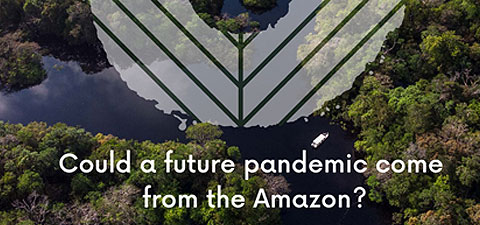

Tuesday, May 11, 2021
10:00 – 11:30am Washington D.C. |
Time Zone Converter
Webinar hosted by the Amazon Sustainable Landscapes Program – World Bank Group
Spanish and Portuguese simultaneous interpretation will be available.
Download the report English | Español | Português
Download the presentation
Watch the recording
Pandemics have arisen roughly every 20 years over the past century and a half. The Amazon has characteristics – high diversity of wildlife virus hosts and rising deforestation rates – which are common to hotspots for emerging diseases. Yet, currently the Amazon is still considered a low spillover area. This webinar hosted by the ASL program will present the results of the report “Could a future pandemic come from the Amazon? The Science and Policy of Pandemic Prevention in the Amazon”, that suggests key actions to reduce the risk that the basin becomes a source of future pandemics.
Global economic losses in the tens of trillions of dollars, the loss of millions of lives and untold social disruption resulting from COVID-19 suggest that investing billions of dollars in preventing pandemics is a sound investment. The Amazon offers cost-effective opportunities to reduce deforestation, restore and protect indigenous lands and protected areas, and maintain its vital role in the climate system. The regional and global benefits of these actions merit national investments, complemented by international funding, to help prevent the next pandemic. While the efforts of the GEF-funded ASL Program and other national and regional initiatives are headed in the right direction, these approaches need to be scaled up to further control deforestation and thus, reduce the risk of future pandemics.
Karin Kemper – Global Director, Environment, Natural Resources and Blue Economy Global Practice, World Bank
Neil Vora – Pandemic Prevention Fellow, Conservation International
Mariana M. Vale – Associate Professor, Federal University of Rio de Janeiro, Brazil
Pablo A. Marquet – Professor, Pontifical Catholic University of Chile
Carlos Scaramuzza – Technical Director, International Institute for Sustainability, Brazil
Gustavo Fonseca – Director of Programs, The Global Environment Facility
Valerie Hickey – Practice Manager, Environment and Natural Resources Global Practice, World Bank
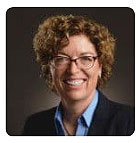  Karin Kemper, Global Director, Environment, Natural Resources and Blue Economy Global Practice, World Bank Karin Kemper, Global Director, Environment, Natural Resources and Blue Economy Global Practice, World Bank
Karin has served in a range of functions at the World Bank, including as the Senior Director for Environment and Natural Resources, Senior Regional Advisor in the Office of the Vice President of the Latin America and Caribbean Region and as the World Bank Director of Climate Policy and Finance. Dr. Kemper is a German national and holds a Ph.D. in Water and Environmental Studies and a B.Sc. in International Business Administration and Economics from Linköping University in Sweden as well as a M.Sc. in Nutrition and Integrative Health from Maryland University of Integrative Health in the United States. |
| |
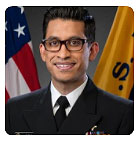  Neil M. Vora, Pandemic Prevention Fellow, Conservation International Neil M. Vora, Pandemic Prevention Fellow, Conservation International
Neil is a physician with Conservation International where he supports efforts on pandemic prevention through addressing the underlying drivers of pathogen emergence such as deforestation. He was previously with the US Center for Disease Control and Prevention (CDC), which he first joined in 2012 as an Epidemic Intelligence Service (EIS) officer. While with CDC, Dr. Vora was deployed to Liberia and the Democratic Republic of the Congo to assist in the response to the Ebola outbreaks and to the country of Georgia to lead an investigation of a newly discovered virus related to the smallpox virus. In 2020, Dr. Vora led New York City’s COVID-19 contact tracing program. He completed medical school at the University of California, San Francisco (UCSF) in 2009 and his Internal Medicine residency at Columbia University in 2012. |
| |
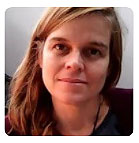  Mariana M. Vale, Associate Professor, Federal University of Rio de Janeiro Mariana M. Vale, Associate Professor, Federal University of Rio de Janeiro
Mariana is Associate Professor at the Ecology Department of the Federal University of Rio de Janeiro (UFRJ), Brazil. Mariana holds a Ph.D. in Ecology from Duke University, USA, and a Master of Arts in Conservation Biology from Columbia University, USA. Her research focuses on global change and biodiversity conservation in the Tropics, with an emphasis on biodiversity and ecosystem services. She was the head of UFRJ’s Ecology Department and President of the Latin America and Caribbean Section of the Society for Conservation Biology. Currently, she is in the Managing Council of the Brazilian National Institute for Ecology, Evolution and Conservation of Biodiversity (INCT EECBio), coordinates the Biodiversity Branch of the Brazilian Research Network on Global Climate Change (Rede CLIMA), and is a member of UN’s Intergovernmental Panel on Climate Change (IPCC). |
| |
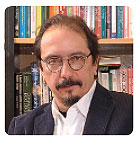  Pablo A. Marquet, Professor, Pontifical Catholic University of Chile Pablo A. Marquet, Professor, Pontifical Catholic University of Chile
Pablo is Professor in the Department of Ecology at the Pontifical Catholic University of Chile (UC), External Professor at the Santa Fe Institute, President of the Institute of Complex Systems of Valparaíso (Chile), and member of the Institute of Ecology and Biodiversity (IEB) and the UC Center for Global Change. He holds a Ph.D. in Biology from the University of New Mexico. His main interests are ecology, global change and complex systems. He received a Guggenheim Fellowship in 2006, is a Corresponding Member of the Chilean Academy of Sciences (2013), International Member of the National Academy of Sciences (NAS, USA, 2018), International Honorary member of the American Academy of Arts and Sciences (AmAcad, 2018), Fellow of The World Academy of Sciences (TWAS, 2018) and Fellow of the Ecological Society of America (ESA). |
| |
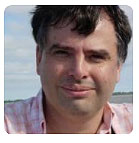  Carlos Scaramuzza, Technical Director, International Institute for Sustainability Carlos Scaramuzza, Technical Director, International Institute for Sustainability
Carlos holds a B.Sc. in Biology and Sc.D. in Ecology from the University of São Paulo, Brazil. He has over 30 years of professional experience related to biodiversity conservation public policies. His major areas of expertise are conservation biology; forest restoration; landscape, vegetation and community ecology; land use and land cover dynamics; and use of ecological modeling, remote sensing and geographical information system tools. In 2018, he created Flexus Biodiversity and Sustainability Solutions, a consultancy company with the mission to accelerate the transition to a sustainable future through biodiversity conservation and forest restoration. He is also the Technical Director of the International Institute for Sustainability, a think tank devoted to promoting sustainable land use, since 2019. |
| |
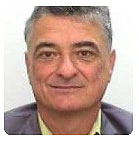  Gustavo Fonseca, Director of Programs, The Global Environment Facility Gustavo Fonseca, Director of Programs, The Global Environment Facility
Dr. Fonseca is the Director of Programs at the Global Environment Facility in charge of a technical team responsible for programming and disbursing over $1 billion annually to projects in over 150 developing countries dealing with biodiversity, climate change mitigation and adaptation, marine and freshwater conservation, and phasing out harmful chemicals and mercury. Before that, he was the Chief Conservation and Science Officer of Conservation International, founder and first Director of the Center for Applied Biodiversity Science, and a tenured Professor of Zoology and Ecology at the Federal University of Minas Gerais, Brazil. He holds a Master's degree and a Ph.D. from the University of Florida. He received the Oliver Austin Award of the University of Florida for outstanding research in the natural sciences, the Golden Ark Award, an official order of the Dutch government, among others. In 2017 he was granted with the Distinguished Alumnus Award from the University of Florida. |
| |
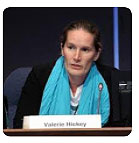  Valerie Hickey, Practice Manager, Environment and Natural Resources Global Practice, World Bank Valerie Hickey, Practice Manager, Environment and Natural Resources Global Practice, World Bank
Valerie worked across the Bank´s regions providing design and implementation support to a variety of operations across the world, including in fragile states, where she led the Bank's environment portfolio in Haiti following the earthquake in 2010. As chair of the biodiversity and wildlife crime communities of practice. Valerie represents the World Bank in international conventions related to biodiversity. She also leads the Bank's work on two global biodiversity grant-making operations, namely the Critical Ecosystem Partnership Fund and the Save Our Species Program. Valerie holds a Ph.D. in Environmental Science and Policy from Duke University and a Master of Arts in negotiations from Notre Dame. |
- Pandemic
- Webinars
- Amazon
- ASL
- COVID-19
Calendar » ASL Webinar: Could a future pandemic come from the Amazon?
ASL Webinar: Could a future pandemic come from the Amazon?
10:00 – 11:30am Washington D.C.
Time Zone Converter
Webinar hosted by the Amazon Sustainable Landscapes Program – World Bank Group
Spanish and Portuguese simultaneous interpretation will be available.
Download the report English | Español | Português
Download the presentation
Watch the recording
Pandemics have arisen roughly every 20 years over the past century and a half. The Amazon has characteristics – high diversity of wildlife virus hosts and rising deforestation rates – which are common to hotspots for emerging diseases. Yet, currently the Amazon is still considered a low spillover area. This webinar hosted by the ASL program will present the results of the report “Could a future pandemic come from the Amazon? The Science and Policy of Pandemic Prevention in the Amazon”, that suggests key actions to reduce the risk that the basin becomes a source of future pandemics.
Global economic losses in the tens of trillions of dollars, the loss of millions of lives and untold social disruption resulting from COVID-19 suggest that investing billions of dollars in preventing pandemics is a sound investment. The Amazon offers cost-effective opportunities to reduce deforestation, restore and protect indigenous lands and protected areas, and maintain its vital role in the climate system. The regional and global benefits of these actions merit national investments, complemented by international funding, to help prevent the next pandemic. While the efforts of the GEF-funded ASL Program and other national and regional initiatives are headed in the right direction, these approaches need to be scaled up to further control deforestation and thus, reduce the risk of future pandemics.
Karin Kemper – Global Director, Environment, Natural Resources and Blue Economy Global Practice, World Bank
Neil Vora – Pandemic Prevention Fellow, Conservation International
Mariana M. Vale – Associate Professor, Federal University of Rio de Janeiro, Brazil
Pablo A. Marquet – Professor, Pontifical Catholic University of Chile
Carlos Scaramuzza – Technical Director, International Institute for Sustainability, Brazil
Gustavo Fonseca – Director of Programs, The Global Environment Facility
Valerie Hickey – Practice Manager, Environment and Natural Resources Global Practice, World Bank
Karin has served in a range of functions at the World Bank, including as the Senior Director for Environment and Natural Resources, Senior Regional Advisor in the Office of the Vice President of the Latin America and Caribbean Region and as the World Bank Director of Climate Policy and Finance. Dr. Kemper is a German national and holds a Ph.D. in Water and Environmental Studies and a B.Sc. in International Business Administration and Economics from Linköping University in Sweden as well as a M.Sc. in Nutrition and Integrative Health from Maryland University of Integrative Health in the United States.
Neil is a physician with Conservation International where he supports efforts on pandemic prevention through addressing the underlying drivers of pathogen emergence such as deforestation. He was previously with the US Center for Disease Control and Prevention (CDC), which he first joined in 2012 as an Epidemic Intelligence Service (EIS) officer. While with CDC, Dr. Vora was deployed to Liberia and the Democratic Republic of the Congo to assist in the response to the Ebola outbreaks and to the country of Georgia to lead an investigation of a newly discovered virus related to the smallpox virus. In 2020, Dr. Vora led New York City’s COVID-19 contact tracing program. He completed medical school at the University of California, San Francisco (UCSF) in 2009 and his Internal Medicine residency at Columbia University in 2012.
Mariana is Associate Professor at the Ecology Department of the Federal University of Rio de Janeiro (UFRJ), Brazil. Mariana holds a Ph.D. in Ecology from Duke University, USA, and a Master of Arts in Conservation Biology from Columbia University, USA. Her research focuses on global change and biodiversity conservation in the Tropics, with an emphasis on biodiversity and ecosystem services. She was the head of UFRJ’s Ecology Department and President of the Latin America and Caribbean Section of the Society for Conservation Biology. Currently, she is in the Managing Council of the Brazilian National Institute for Ecology, Evolution and Conservation of Biodiversity (INCT EECBio), coordinates the Biodiversity Branch of the Brazilian Research Network on Global Climate Change (Rede CLIMA), and is a member of UN’s Intergovernmental Panel on Climate Change (IPCC).
Pablo is Professor in the Department of Ecology at the Pontifical Catholic University of Chile (UC), External Professor at the Santa Fe Institute, President of the Institute of Complex Systems of Valparaíso (Chile), and member of the Institute of Ecology and Biodiversity (IEB) and the UC Center for Global Change. He holds a Ph.D. in Biology from the University of New Mexico. His main interests are ecology, global change and complex systems. He received a Guggenheim Fellowship in 2006, is a Corresponding Member of the Chilean Academy of Sciences (2013), International Member of the National Academy of Sciences (NAS, USA, 2018), International Honorary member of the American Academy of Arts and Sciences (AmAcad, 2018), Fellow of The World Academy of Sciences (TWAS, 2018) and Fellow of the Ecological Society of America (ESA).
Carlos holds a B.Sc. in Biology and Sc.D. in Ecology from the University of São Paulo, Brazil. He has over 30 years of professional experience related to biodiversity conservation public policies. His major areas of expertise are conservation biology; forest restoration; landscape, vegetation and community ecology; land use and land cover dynamics; and use of ecological modeling, remote sensing and geographical information system tools. In 2018, he created Flexus Biodiversity and Sustainability Solutions, a consultancy company with the mission to accelerate the transition to a sustainable future through biodiversity conservation and forest restoration. He is also the Technical Director of the International Institute for Sustainability, a think tank devoted to promoting sustainable land use, since 2019.
Dr. Fonseca is the Director of Programs at the Global Environment Facility in charge of a technical team responsible for programming and disbursing over $1 billion annually to projects in over 150 developing countries dealing with biodiversity, climate change mitigation and adaptation, marine and freshwater conservation, and phasing out harmful chemicals and mercury. Before that, he was the Chief Conservation and Science Officer of Conservation International, founder and first Director of the Center for Applied Biodiversity Science, and a tenured Professor of Zoology and Ecology at the Federal University of Minas Gerais, Brazil. He holds a Master's degree and a Ph.D. from the University of Florida. He received the Oliver Austin Award of the University of Florida for outstanding research in the natural sciences, the Golden Ark Award, an official order of the Dutch government, among others. In 2017 he was granted with the Distinguished Alumnus Award from the University of Florida.
Valerie worked across the Bank´s regions providing design and implementation support to a variety of operations across the world, including in fragile states, where she led the Bank's environment portfolio in Haiti following the earthquake in 2010. As chair of the biodiversity and wildlife crime communities of practice. Valerie represents the World Bank in international conventions related to biodiversity. She also leads the Bank's work on two global biodiversity grant-making operations, namely the Critical Ecosystem Partnership Fund and the Save Our Species Program. Valerie holds a Ph.D. in Environmental Science and Policy from Duke University and a Master of Arts in negotiations from Notre Dame.